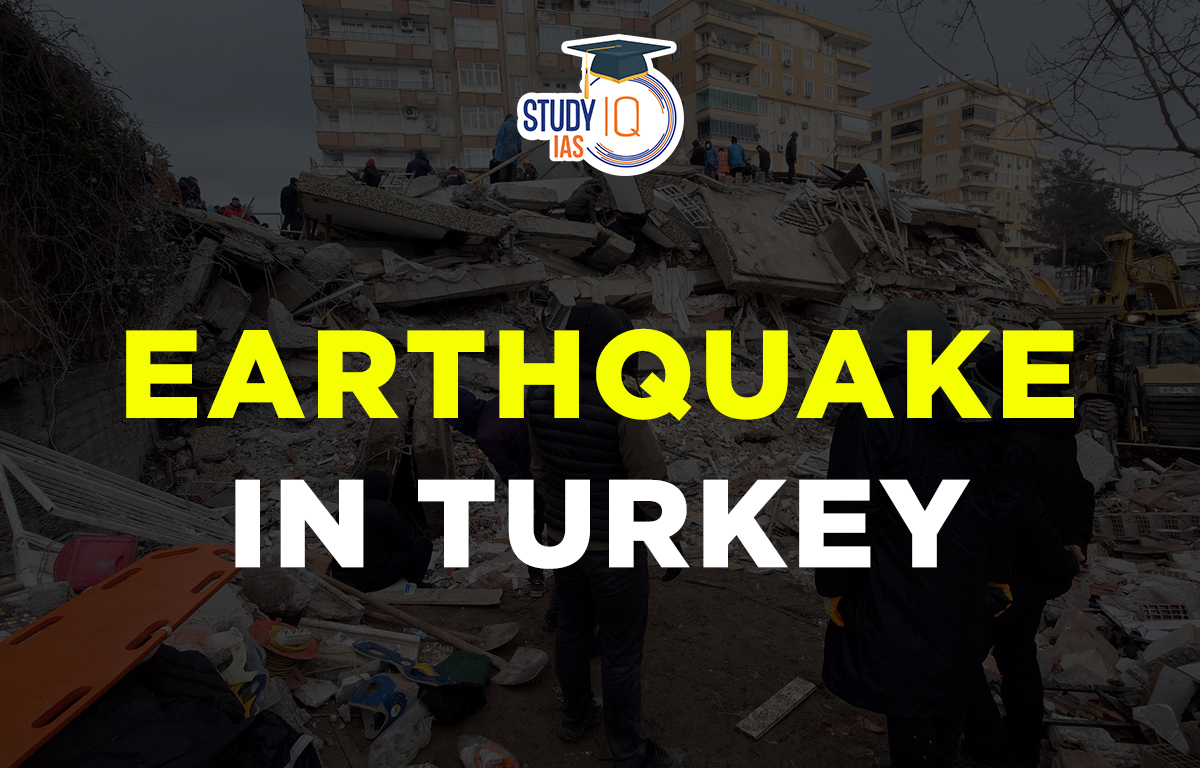Table of Contents
Earthquake in Turkey: On May 15, 2025, a powerful earthquake of 5.1 magnitude on the Richter scale hit Turkey’s Central Anatolia region. The quake, which occurred at 3:46 PM local time, was felt intensely in Turkey’s capital city, Ankara, and surrounding regions. No immediate casualties or building damages have been reported.
Turkey, situated on several active fault lines, is among the most earthquake-susceptible nations in the world. This recent earthquake reminds us of the prevailing seismic dangers confronted by the region and the importance of being prepared.
In this article, we present a comprehensive overview of the earthquake, its effects, seismic activity in the region, and the reasons for frequent earthquakes in Turkey. This information is important for students preparing for competitive exams such as UPSC and for general awareness among the public.
Earthquake Details: What Happened on May 15, 2025?
-
Date & Time: May 15, 2025, 3:46 PM (local time)
-
Magnitude: 5.1 on the Richter scale
-
Epicenter: 14 km northeast of Kulu, Central Anatolia, Turkey
-
Location Impacted: Tremors felt strongly in Ankara, Turkey’s capital
-
Damage Report: No immediate reports of injuries or structural damage
-
Source: European-Mediterranean Seismological Centre (EMSC)
According to reports, the tremors were felt across a wide area, including Turkey’s key population centers. Local authorities and disaster management teams are monitoring the situation closely to ensure public safety.
Why Turkey Is Prone to Earthquakes?
Turkey’s vulnerability to earthquakes stems from its unique geological position. The country lies at the intersection of three major tectonic plates: the Anatolian Plate, Eurasian Plate, and the Arabian Plate. This positioning creates intense tectonic stresses, resulting in frequent seismic activity.
The most significant fault line in Turkey is the North Anatolian Fault (NAF), which is a major strike-slip fault responsible for many destructive earthquakes in the region.
Key Reasons for Earthquake Proneness:
-
Location at the convergence of three tectonic plates
-
Presence of active fault lines like the North Anatolian Fault
-
Regular release of seismic energy through frequent earthquakes (at least one magnitude 5+ earthquake annually)
Recent Seismic Activity in the Region
The May 15 earthquake is part of ongoing seismic activity in the Eastern Mediterranean region:
-
May 14, 2025: A 6.1 magnitude earthquake struck near Fry, Greece, causing tremors felt in Egypt, Israel, Lebanon, Turkey, and Jordan. A tsunami warning was issued but later lifted after assessments.
-
April 2025: Istanbul and nearby areas experienced a 5.2 magnitude earthquake, causing widespread panic and over 230 injuries mainly due to panic-induced falls and stampedes. Istanbul remains at high risk for future major quakes due to its proximity to the North Anatolian Fault.
Historical Context: The 2023 Turkey-Syria Earthquakes
Turkey’s seismic history is marked by devastating earthquakes, with the most recent major disaster occurring in February 2023:
-
Magnitude: 7.8 and 7.5 (two major quakes)
-
Death Toll: Over 67,000 fatalities (59,000 in Turkey and 8,000 in Syria)
-
Impact: Massive destruction of buildings and infrastructure, triggering a large-scale humanitarian crisis.
-
The event highlighted the urgent need for robust earthquake preparedness and resilient infrastructure.
Safety Tips During Earthquakes
Residents and visitors in earthquake-prone areas like Turkey should keep the following safety tips in mind:
-
Stay calm and move to a safe spot away from windows and heavy furniture.
-
Avoid using elevators immediately after an earthquake.
-
If outdoors, move to an open space away from buildings, streetlights, and utility wires.
-
Follow instructions from local authorities and emergency services.
-
Aftershocks are common; stay alert for subsequent tremors.
Conclusion
The 5.1 magnitude earthquake on May 15, 2025, serves as a reminder of Turkey’s persistent seismic risks due to its tectonic setting. While no immediate casualties were reported, continuous vigilance, public awareness, and adherence to safety protocols remain essential.
For students and aspirants preparing for competitive exams like UPSC, understanding the geological causes and impact of such earthquakes is vital for geography and disaster management topics.


 Tarique Rahman: From Exile to Prime Mini...
Tarique Rahman: From Exile to Prime Mini...
 Bangladesh Election Results 2026: Tariqu...
Bangladesh Election Results 2026: Tariqu...
 World Radio Day 2026: Theme, History, Im...
World Radio Day 2026: Theme, History, Im...

























